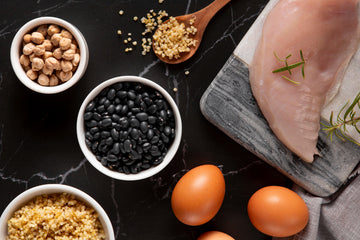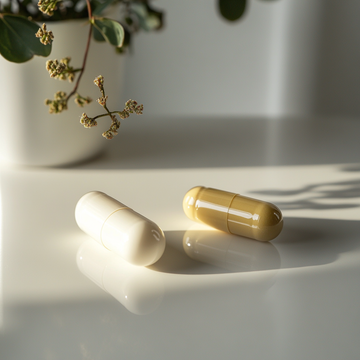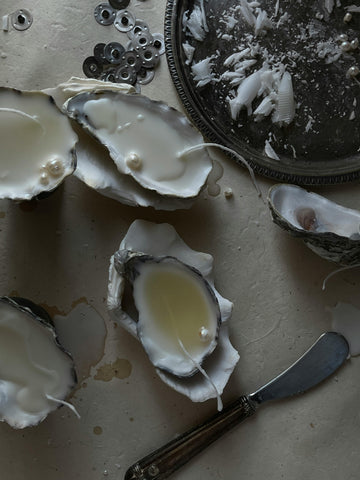Those who want to build muscle often train intensively – but without the right nutrition, success is elusive. Protein-rich foods form the foundation for muscle growth, but are often consumed in the wrong doses or at the wrong time. While some athletes overestimate their protein intake, others underestimate the influence of timing and quality. Science shows clear strategies for optimal muscle building through targeted protein intake.
Key Takeaways
-Scientifically calculate your individual protein needs
-Learn the best animal and plant protein sources
-Optimal protein timing for maximum muscle protein synthesis
-Recognize and avoid common protein traps
-Practical strategies for sustainable muscle building
How much protein do you really need?
The question of optimal protein requirements has occupied scientists for decades. Current research shows significant differences between the recommendations for recreational athletes and ambitious strength athletes. The German Nutrition Society recommends 0.8 grams of protein per kilogram of body weight daily as a basic intake for healthy adults.
This base is sufficient for normal physical activity. However, once regular strength training comes into play, the requirement increases significantly. Sports science studies show an optimal range of 1.6 to 2.2 grams per kilogram of body weight for effective muscle building. An 80-kilogram athlete therefore needs between 128 and 176 grams of protein daily.
Individual factors determine the need
Several factors significantly influence personal protein needs:
-Training intensity and frequency : If you train intensively five times a week, you need more protein than if you train twice a week
-Body composition : People with higher muscle mass have an increased need
-Age : From the age of 30, the protein synthesis rate decreases, which requires higher intake
-Gender : Men tend to show higher absolute requirements
-Training goal: Building muscle requires more protein than just maintaining strength
Things get interesting when considering age. While young adults often do well with 1.6 grams per kilogram, the requirement for people over 65 increases to at least 1.2 grams – even without intensive training. This is due to the declining efficiency of muscle protein synthesis. Be aware of possible protein deficiency symptoms that can occur with insufficient intake, such as fatigue, muscle weakness, or brittle nails. Knowing your exact needs will help prevent this.
Avoid common calculation errors
Practice reveals recurring errors in determining protein needs. Many athletes add up their total protein consumption without distinguishing between different qualities. A steak provides different amino acid profiles than beans, even though both are considered protein sources.
Typical sources of error:
-Confusion of food weight and protein content (100g chicken ≠ 100g protein)
-Ignoring the biological value of different sources
-Disregard of the distribution throughout the day
-Overestimation of protein content in processed foods
-Neglecting the combined effect of different amino acids
A practical example illustrates the complexity: 100 grams of chicken breast contains approximately 23 grams of protein, while 100 grams of lentils provide only 9 grams. Nevertheless, lentils combined with rice can achieve a higher biological value than chicken alone.
A realistic assessment of needs forms the foundation of any successful nutrition strategy. Knowing your basal metabolic rate and taking training intensity into account allows you to precisely determine your individual protein needs.
Which animal proteins are the best?

Animal proteins have been considered the gold standard for muscle building for decades. This reputation is based on scientific facts: They contain all essential amino acids in optimal ratios and have a high biological value. However, not all animal sources are equally valuable for muscle building.
Meat sources: The protein champions
Top meat sources in comparison (values per 100g):
-Chicken breast : 23g protein, 1g fat, 110 calories per 100g
-Turkey breast: 22g protein, 1g fat, 105 calories per 100g
-Lean beef: 26g protein, 5g fat, 150 calories per 100g
-Pork loin: 21g protein, 3g fat, 115 calories per 100g
-Veal schnitzel: 24g protein, 2g fat, 120 calories per 100g
-Lamb fillet: 25g protein, 8g fat, 175 calories per 100g
-Wild game (venison): 22g protein, 3g fat, 120 calories per 100g
Lean meat dominates as the most effective protein source for muscle building. Beef also provides iron for optimal oxygen transport. A palm-sized portion (120g) after training provides approximately 28 grams of protein.
Eggs: The biological value champion
Whole egg (large): 6g protein, 5g fat, 80 calories
Protein only: 3.6g protein, 0g fat, 17 calories
Egg yolk only: 2.7g protein, 5g fat, 60 calories
3 whole eggs: 18g protein, 15g fat, 240 calories
6 egg whites + 2 whole eggs: 20g protein, 10g fat, 194 calories
As a reference protein, whole eggs have a value of 100 on the biological value scale. The body can utilize egg protein almost completely. Those who consume only egg whites are wasting valuable nutrients such as choline and vitamin D from the yolk.
Fish & seafood: Double benefit for muscle building
-Tuna (in water): 29g protein, 1g fat, 130 calories
-Salmon: 25g protein, 12g fat, 200 calories
-Shrimp: 24g protein, 1g fat, 105 calories
-Cod: 20g protein, 1g fat, 90 calories
-Mackerel: 24g protein, 14g fat, 220 calories
-Halibut: 23g protein, 3g fat, 120 calories
-Trout: 22g protein, 8g fat, 160 calories
-Sardines: 25g protein, 11g fat, 190 calories
Fish combines excellent protein with omega-3 fatty acids to reduce inflammation after exercise. Tuna leads the way with 29 grams of protein and minimal fat. Eating fatty fish twice a week plus lean fish daily optimizes muscle building.
Dairy Products: Smart Choice Guide for Strength Athletes
-Low-fat curd: 13g protein, 0.3g fat, 70 calories
-Skyr: 10g protein, 0.2g fat, 60 calories
-Grained cream cheese: 13g protein, 4g fat, 100 calories
-Greek yogurt: 9g protein, 9g fat, 130 calories
-Harzer cheese: 30g protein, 1g fat, 130 calories
-Mozzarella: 18g protein, 20g fat, 250 calories
-Gouda: 25g protein, 27g fat, 350 calories
Low-fat curd cheese is dominated by casein protein, which releases amino acids over several hours. A 200-gram portion in the evening provides optimal muscle nutrition during the night. Harzer cheese offers a surprising 30 grams of protein, but can be problematic due to its high salt content.
Preparation strategies for maximum protein content
Practical portion rules
-Palm: corresponds to 100g of meat or fish
-Two thumbs: optimal amount of cheese (30g)
-One cup: 200g curd for post-workout
-Fist-sized: Chicken breast portion (150g)
Grilling and steaming preserve the most protein, while prolonged cooking can leach amino acids. Combining different animal proteins throughout the day maximizes amino acid diversity.
Can plant proteins build muscle?

Plant proteins were long considered second-rate for muscle building. Recent studies disprove this myth: With sufficient total protein intake, plant and animal sources achieve identical results. Natural protein sources from the plant world offer additional benefits through fiber, antioxidants, and lower inflammatory markers.
Legumes: The protein foundation
Legume ranking for muscle building:
-Red lentils (cooked): 9g protein, 0.4g fat, 115 calories
-Black beans (cooked): 9g protein, 0.5g fat, 130 calories
-Chickpeas (cooked): 8g protein, 2.6g fat, 165 calories
-Kidney beans (cooked): 8g protein, 0.5g fat, 125 calories
-White beans (cooked): 10g protein, 0.7g fat, 140 calories
-Peas (cooked): 8g protein, 0.4g fat, 110 calories
-Lupines: 16g protein, 3g fat, 115 calories
-Edamame: 11g protein, 5g fat, 125 calories
Legumes form the backbone of plant-based protein nutrition for athletes. Lupins lead the way with 16 grams of protein and contain all essential amino acids. One cup of cooked lentils (200g) provides 18 grams of protein, plus iron and folic acid for recovery.
Nuts and seeds: concentrated protein power
-Hemp seeds: 31g protein, 49g fat, 550 calories
-Pumpkin seeds: 19g protein, 49g fat, 560 calories
-Sunflower seeds: 21g protein, 51g fat, 570 calories
-Almonds: 21g protein, 50g fat, 580 calories
-Peanuts: 26g protein, 49g fat, 570 calories
-Walnuts: 15g protein, 65g fat, 650 calories
-Chia seeds: 17g protein, 31g fat, 485 calories
-Flaxseed: 18g protein, 42g fat, 535 calories
Nuts and seeds offer concentrated protein power, but require portion control due to their high calorie density. Hemp seeds impress with a complete amino acid profile and an optimal omega-3 to omega-6 balance. A handful (30g) provides 6-8 grams of high-quality protein.
Cereals and pseudocereals: underestimated protein bases
-Quinoa (cooked): 4.4g protein, 1.9g fat, 120 calories
-Amaranth (cooked): 4g protein, 2g fat, 105 calories
-Buckwheat (cooked): 3.4g protein, 1g fat, 90 calories
-Oat flakes: 13g protein, 7g fat, 370 calories
-Spelt (cooked): 5g protein, 1g fat, 125 calories
-Bulgur (cooked): 3g protein, 0.2g fat, 85 calories
-Wild rice (cooked): 4g protein, 0.3g fat, 100 calories
Quinoa stands out as the only grain with a complete amino acid profile—all nine essential amino acids in optimal ratios. Oatmeal surprises with 13 grams of protein per 100g of dry weight. A bowl of porridge (80g of oatmeal) starts the day with 10 grams of protein.
Soy products: The wholefood champions
-Tempeh: 19g protein, 11g fat, 190 calories
-Tofu firm: 15g protein, 8g fat, 145 calories
-Tofu Silk: 5g protein, 3g fat, 55 calories
-Soy flakes: 40g protein, 20g fat, 380 calories
-Edamame: 11g protein, 5g fat, 125 calories
-Soy milk: 3g protein, 2g fat, 40 calories
Soy products are the only plant-based source that offers the biological value of animal proteins. Tempeh, thanks to fermentation, provides 19 grams of protein and improved digestibility. A study in the International Journal of Environmental Research and Public Health, for example, shows that 12 weeks of strength training with soy or whey protein supplementation at the same leucine dosage led to identical gains in muscle mass and strength—with no significant differences between the groups.
Intelligent combinations for complete amino acid profiles

Proven protein combinations:
-Rice + Beans: Completes lysine and methionine
-Quinoa + Nuts: Strengthens already complete profiles
-Oat flakes + chia seeds: Optimizes leucine content
-Lentils + Sunflower Seeds: Balances all amino acids
-Hummus + whole wheat bread: Classic Mediterranean combination
The clever combination of different plant proteins within 24 hours compensates for amino acid deficiencies. A groundbreaking study by Young and Pellett from 1994 confirmed that protein supplements at meals are completely unnecessary—a varied plant-based diet throughout the day optimally covers all essential amino acids. Those seeking a practical solution for higher protein intake can opt for concentrated blends— MTM Vegan Protein, for example, combines pea and rice protein with additional enzymes for optimal digestibility.
When should you eat protein?
Protein timing has divided the fitness world for years. Total protein intake over 24 hours is more important for muscle growth than minute-by-minute timing. Nevertheless, strategic timing approaches can optimize training performance.
Pre-workout (30-60 minutes before)
Protein before training prevents muscle breakdown during intense sessions. 15-25 grams of rapidly digestible protein ensures amino acid availability. Liquid proteins require 30 minutes of preparation time, while solid foods require 60 minutes.
Post-workout (0-2 hours)
The famous "30-minute window" is larger than previously thought. Current research shows a 2-hour window for optimal muscle protein synthesis. 25-40 grams of high-quality protein maximizes post-workout recovery.
Carbohydrates enhance the effect of protein through insulin release. Eating to build muscle means eating protein plus carbs for maximum anabolic energy. Practical protein shake recipes offer a variety of post-workout solutions for every taste.
Before Bed
Casein protein before bedtime supplies the muscles with amino acids overnight. 20-30 grams about 30 minutes before bedtime optimizes nighttime recovery. Casein forms a gel in the stomach that continuously releases amino acids over 6-8 hours.
Spread throughout the day
Spreading 20-30 grams of protein every 3-4 hours maximizes muscle protein synthesis better than a few large portions. The body can only use a limited amount of protein at a time for muscle building. Regularity beats perfect timing.
Common protein pitfalls and how to avoid them

Even experienced athletes fall into common protein traps that hinder muscle growth or cause unnecessary costs. These mistakes often arise from outdated information or marketing myths in the supplement industry.
Overdose
Many athletes consume more than 3 grams of protein per kilogram of body weight daily, following the motto "more is better." However, if you consume more than 2.2 grams per kilogram, the extra protein will not provide any benefit for muscle building. Excess protein is burned as expensive energy or puts a strain on the kidneys. An 80-kilogram athlete is wasting money if they consume more than 180 grams of protein daily.
Ignoring biological value
The most common mistake in protein consumption is focusing on the sheer number of grams without considering the quality. Thirty grams of protein from wheat bread has a completely different effect than 30 grams from eggs or meat. Proteins with low biological value cannot be efficiently converted into the body's own protein. Natural protein sources with high biological value should make up 70 percent of your daily protein intake.
Timing obsession instead of overall focus
Some athletes spend more time calculating optimal protein timing than productive training. They set alarms for protein shakes every two hours and panic when their post-workout protein is late. This timing obsession creates unnecessary stress and obscures the fact that total protein intake over 24 hours is more crucial.
Overlooked hidden protein sources
Many athletes only count "obvious" protein sources like meat, fish, and shakes, but overlook protein-rich foods in their daily diet. Bread, pasta, rice, and vegetables also contain protein, which contributes to the daily intake. A plate of spaghetti (100g) provides 13 grams of protein, while a large slice of whole-grain bread provides 4 grams. These hidden sources can cover 20-30 percent of your daily protein needs.
Underestimating vegetarian protein
A widespread myth holds that plant proteins are inherently inferior to animal proteins. With sufficient total intake, plant and animal proteins achieve identical muscle-building results. Vegetarians can optimally cover all essential amino acids by cleverly combining different plant proteins. Forgoing intelligent plant-based tips for muscle building unnecessarily limits protein diversity.
The MTM Way: Holistic Muscle Building

Building muscle is an art that goes beyond mere training. It's the result of a harmonious symphony of targeted training, precise nutrition, and efficient recovery. While this article has explored the scientific basis and practical strategies for optimizing your protein intake—from the ideal amount of high-quality sources to clever timing—this only paints a small part of the picture.
At MTM Supplements , we understand that your body is a complex system. That's why we offer you not only in-depth knowledge but also the highest-quality products based on the latest scientific findings. Let us be your partner on the path to your goals.
FAQ
How much protein do I need daily for optimal muscle building?
Strength athletes need 1.6–2.2 grams of protein per kilogram of body weight daily. For an 80 kg athlete, this equates to 128–176 grams of protein.
Are plant proteins as effective as animal proteins?
Yes, with sufficient total intake, plant and animal proteins achieve identical muscle-building results. A clever combination of different plant proteins compensates for amino acid deficiencies.
Do I need to consume protein immediately after training?
The "30-minute window" is a myth. Current research shows a 2-hour window for optimal muscle protein synthesis after training.
Can you eat too much protein?
Yes, above 2.2 grams per kilogram of body weight, additional protein no longer provides any muscle-building benefits. Excess protein is burned as expensive energy.
How do I recognize high-quality protein?
Pay attention to biological value and complete amino acid profiles. Animal proteins and soy products are usually of the highest quality.
Do women need less protein than men?
No, protein needs depend on body weight and training intensity, not gender. The recommendation of 1.6-2.2g per kg applies to both sexes.



